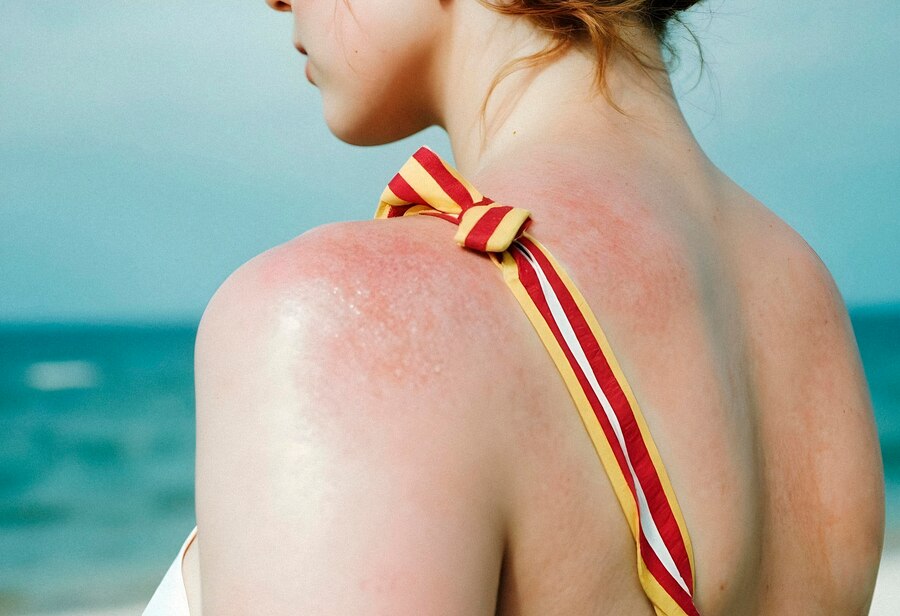Keloid
Our Services
Book an Appointment

Effective Keloid Removal Treatments in Noida at Dermanation
Keloids are raised scars that can develop after skin injuries like cuts, burns, or surgery. These overgrown scars can be itchy, sometimes painful, and may be a cosmetic concern. Unlike typical scars, keloids extend beyond the original wound and often require specialized treatment to manage symptoms and improve their appearance.
At Dermanation clinic in Noida, under the expert care of Dr. Rachna Singh, we offer advanced and personalized keloid removal treatments. Our skilled dermatologists utilize a range of effective techniques tailored to your specific needs, including laser therapy, precise corticosteroid injections, and careful surgical excision when appropriate. At Dermanation, our priority is your comfort and satisfaction. We strive to help you regain confidence by reducing the visibility of keloid scars, ultimately restoring your skin's appearance and your self-esteem.

Seeking a Keloid Specialist in Noida?
A keloid specialist is a dermatologist or surgeon with specific expertise in diagnosing and treating keloid scars. They employ advanced methods to minimize the appearance of keloids, alleviate any discomfort, and provide comprehensive patient care aimed at restoring skin aesthetics.
Dr. Rachna Singh is a leading dermatologist in Noida, recognized for her compassionate approach and extensive experience in scar management, including keloids. She specializes in a variety of advanced keloid removal techniques, such as targeted surgical removal, intralesional corticosteroid injections, and state-of-the-art laser therapies. Her dedication to achieving optimal patient outcomes and satisfaction is a hallmark of the care provided at Dermanation clinic in Noida.

Understanding Keloid Removal Costs in Noida
The cost of keloid removal at Dermanation clinic in Noida typically ranges from approximately Rs. 8,000 to Rs. 12,000 per treatment session. This range accounts for the use of sophisticated techniques such as precise surgical excision, targeted corticosteroid injections, or advanced laser therapy, with the specific method tailored to the individual's keloid and desired outcome. By combining competitive pricing with high-quality dermatological services, Dermanation is committed to helping you effectively address keloid scars and regain smoother, more aesthetically pleasing skin, fostering renewed confidence.
Factors Contributing to Keloid Formation
Genetic Factors: A family history of keloids increases an individual's susceptibility due to inherited genetic traits.
Skin Trauma: Keloids commonly arise at sites where the skin has been injured, whether from cuts, burns, acne breakouts, or surgical procedures.
Collagen Overproduction: An excessive buildup of collagen during the body's natural wound healing process can result in the formation of keloid scars.
Ethnic Predisposition: Individuals with origins in certain ethnic groups, including those of African, Asian, and Hispanic descent, exhibit a higher tendency to develop keloids.
Hormonal Influences: Changes in hormone levels, such as those experienced during puberty, pregnancy, or menopause, may play a role in the development of keloids.
Recognizing Keloid Symptoms
Elevated Scar Tissue: Keloids are defined by raised scar tissue that extends beyond the boundaries of the original skin injury.
Distinctive Coloration: Keloids often present with a reddish or pink hue, which helps differentiate them from the surrounding skin.
Pruritus or Discomfort: The keloid scar may be accompanied by itching, irritation, or a feeling of discomfort, particularly when touched or rubbed.
Tenderness or Pain: Some keloids can be sensitive to the touch or even painful, especially if they are larger or have become inflamed.
Limited Mobility: Keloids situated near joints or areas of frequent movement can sometimes restrict the range of motion due to their size and thickness.
Our Approach to Keloid Treatment at Dermanation
Comprehensive Evaluation: A thorough consultation with our specialists to assess the characteristics of your keloid and discuss tailored treatment strategies that align with your individual needs and concerns.
Topical Solutions: Recommendation of silicone-based gels or sheets to help soften and flatten keloid scars, leading to a gradual improvement in their appearance.
Intralesional Corticosteroid Injections: Direct injection of corticosteroids into the keloid to reduce inflammation and decrease its size, often requiring a series of treatments for optimal outcomes.
Advanced Laser Therapy: Utilizing specialized laser technology to target and break down the excess collagen within the keloid, effectively flattening and lightening the scar tissue.
Precise Surgical Excision: Careful surgical removal of the keloid, often followed by adjunctive treatments to minimize the risk of recurrence and promote optimal healing.
Dedicated Post-Treatment Care: Ensuring regular follow-up appointments and guidance on effective scar management techniques, such as massage and consistent sunscreen use, to maintain treatment results and prevent keloid recurrence.
Review Form

Dr. Rachna Singh is a Dermatologist and Cosmetologist with 16 years of experience in clinical dermatology, hydra facials, pigmentation treatments, mole & wart removal. She practices at Dermanation Clinic, Sector 75, Noida.
- Home |
- About Us |
- Treatment |
- Contact Us |
Shop no - 18A first floor, spectrum mall, Dermanation clinic, Sector 75, Noida, Uttar Pradesh 201304
Mobile No: +91 093194 54789
Email: rachansingh8@gmail.com
Website: www.dermanation.in


